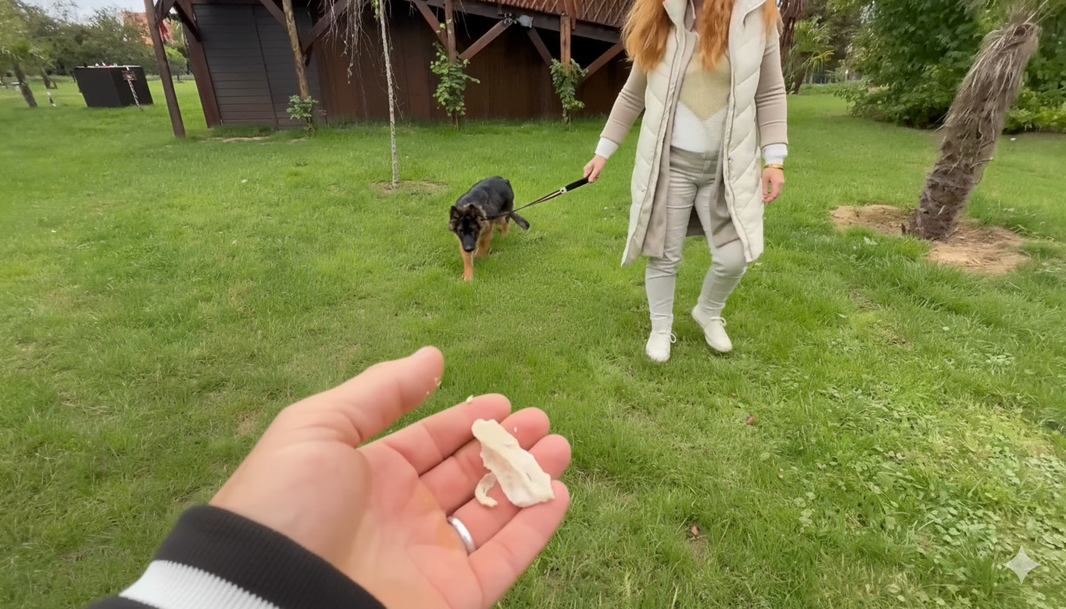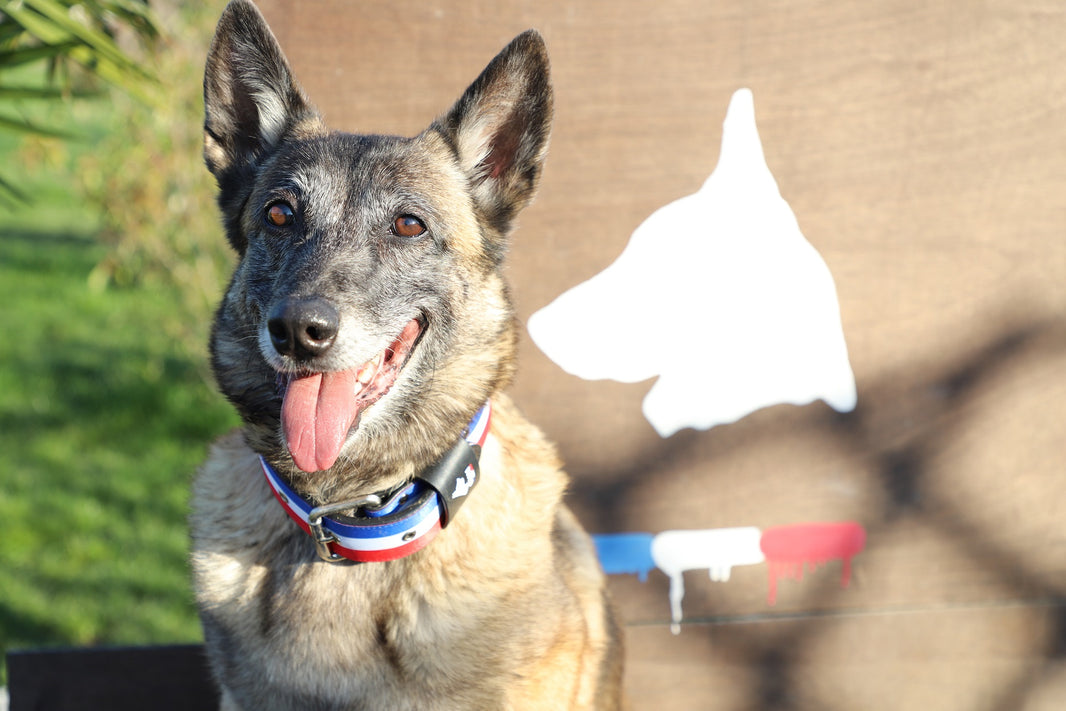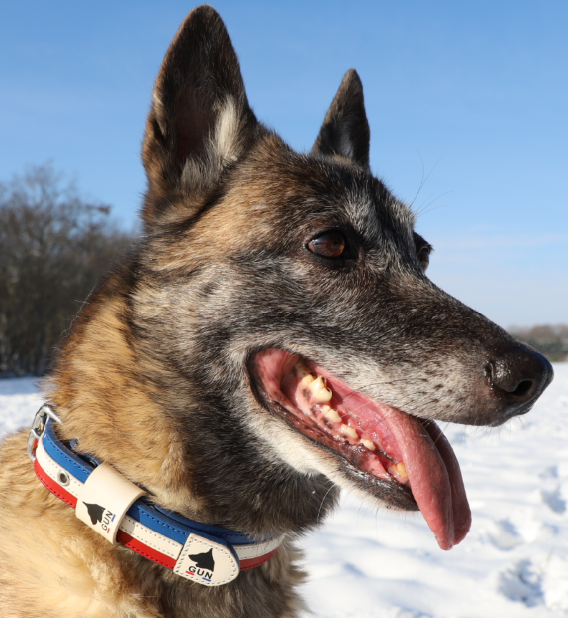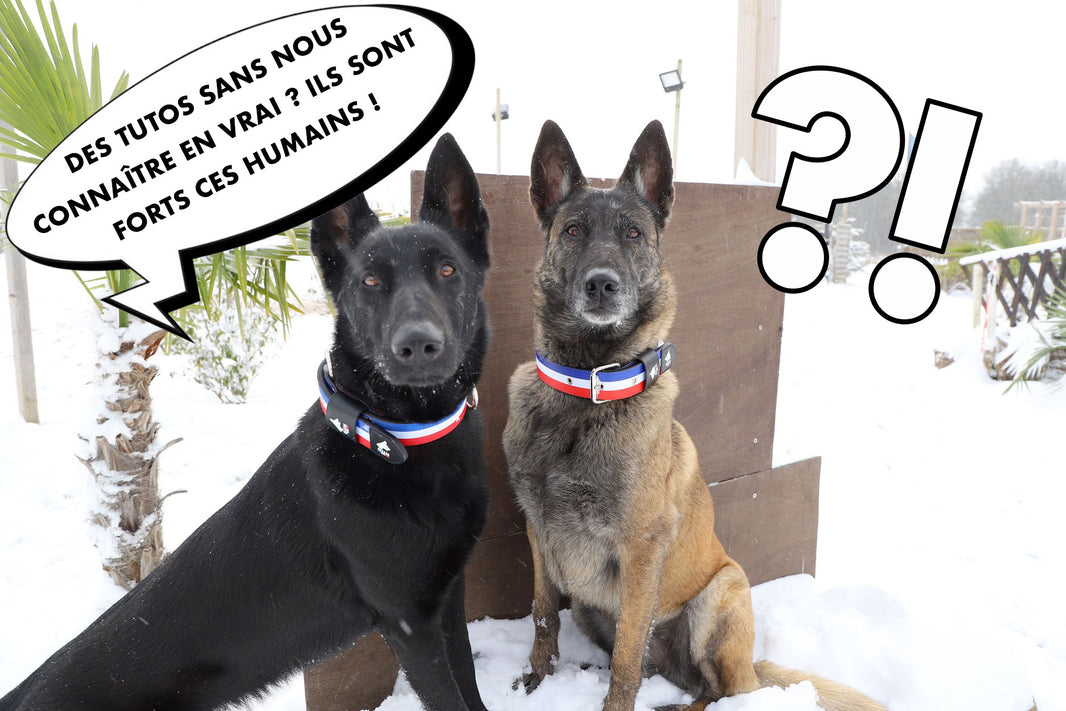A question we are often asked is why did we instinctively decide not to use treats in the education of dogs, puppies, of all breeds and all ages, when we advocate a natural method. We promised you through our social networks and here are our arguments that may shake part of the canine world. These people who defame us and put pressure on us on a daily basis, perhaps to protect their interests rather than those of the animal?
Throughout this article we will explain to you why you are misled everywhere in the canine world (books, videos, centers...) with this designation of "technique" which deceives and underestimates the intelligence of the dog.
Before we begin, we would like to point out that this article is not here to judge those who use or sell it.
We are not against buying treats, dried meats, cakes... to please your dog.
We just disagree in the use of the latter to educate his dog.
A DIVERSION PROCESS
First of all, creating a bond with an animal, a complicity, can only be born with a coherent and sincere education. The use of the treat is a product, a decoy, a ploy . By the time the owner is taught how to use the treat, they will be proud because it seems to work. But what is it really?
Imagine for a moment that you have to be fed continuously and that to reward you for a good deed you are given food. Your attention, your affection vis-à-vis the person who feeds you will be brought only to meet a primary need. Your thought process will therefore be: I do a good deed = I eat ! This is exactly what happens in the minds of dogs.
But tell us, do you force yourself to eat when you're not hungry? Well neither do dogs.

How many times have we been able to observe owners, a treat in hand, trying somehow to call their companions back during walks, in vain. Disappointed, most will come out with this famous phrase: "my dog is stubborn, he doesn't listen to anything". Only, have you ever asked yourself the right questions? What if he just wasn't hungry? Why come for a treat when I don't want it? And yes, the smells I sniff are much more interesting!
A dog trained in treats will not return or perform a specific action for the love of its owners, but only if it wants its reward and therefore wants to eat, even out of greed.
Your pet will constantly stare at your hands, since they are nurturing, but will have a much harder time taking a deep interest in you. When do you want your dog to look at you? Handling language well requires understanding the pragmatics of its use, ie understanding to what extent the mode, form and context of what we say affects the meaning of our words.
In order to reassure and not make the owners feel guilty, the majority will say that it will be necessary to reduce the treats so as not to accustom the animal to the point of no longer giving them.
Do they consider the animal to be naive and amnesic? If the dog is able to understand the concept in relation to the execution of a treat-motivated instruction, what will he say to himself the day he finds himself faced with an empty pocket ? Avoid taking out a tissue or your phone, experience proves that the dog will expect something and will be totally disappointed not to receive anything in return!
This argument clearly demonstrates their real ignorance of the dog and their lack of understanding of the animal.
For us the treat is actually a parade that has nothing innate for the dog and that makes you forget the essential: the dog is not stupid, he wants to please you. It is your satisfaction that satisfies him and encourages him to perform a specific action or come back for a callback, for example. It is revealing to observe the performance of dogs in skills that we believe are reserved for humans.
TREATS INCONSISTENCIES
To go further in our reasoning, we are going to detail the inconsistencies in the use of this parade and it will seem obvious to you, except of course for the candy extremists who will be pulling their hair out while reading this article...
Take bait refusal for example. An aberration that you have delivered to us many times during your visits to The Gun Method. Many canine clubs and trainers teach you to have your dog divert his attention if there is food on the ground. Obviously this is essential for the safety of your dog throughout his life ( besides we will soon offer specialized training on the refusal of bait ), but are they using the right technique? No Unfortunately. When your dog approaches the bait, he sniffs it, you are told to say "NO" and then you reward your dog with food.
We walk on the head ! How do you expect your dog to understand that it's a ban if you reward him with something that you just forbade him just now? In addition, the "NO" that you will associate with the treat will have the opposite effect and your dog will understand that he can eat what is on the ground. It is this way of proceeding that is not logical.
How can you tell the difference between candy and poison? How do you make your animal understand not to eat food (poison) outside when you are rewarding it by feeding it? In addition, you are not safe from dropping your treat on the ground and your dog picking it up!
This article clearly explains to you that the understanding of the dog is very complex, and clearly demonstrates the shortcomings of those who teach it to you!
Education cannot be done by diversion, or by counterpart, blackmail which leads to discomfort, or a false relationship with your dog! You need authenticity with your partner .
It is rather preferable and even obvious to make our dog understand us thanks to our physical emotions, facial expressions, vocalizations, the look... rather than the fingers which contain no emotion, no expression and even less with a treat.. .
The candy extremists didn't explain that to you?
It's better for your dog to get to know you genuinely by bonding with him rather than using a food counterpart. The process of blackmail has no meaning except for the stubborn candy who teach you to create an illusion and sell their services more easily. Moreover, they are the same ones who advise you to come with your dog on an empty stomach before their sessions so that your animal is hungry and that their maneuver has a better chance of working. If that isn't a form of torture...
The truth is there and disturbs! And we can even go further: Some use and recommend wacky torture tools (cans, bottles, filled with pebbles or bolts, electric collars, chokes, spikes, Pet Corrector...) to create corporal punishment on the dog instead of appealing to his intellect...
Second example of the inconsistency of treats: when a dog is not properly socialized or has had a traumatic experience and will come across other congeners, he will not be reassured. Many give a treat if the dog has not growled when passing another congener to congratulate it but have not observed its bodily signals (raised lips, inopportune licking, tucked-in tail, bristling hair, etc.). This will reassure your dog that his attitude is good and reinforce his fear.
This is why we do not recommend the use of treats , which although seemingly harmless, can actually cause damage in the education and behavior of dogs in their real understanding.
In addition to not strengthening the bond, you even risk creating a gap between you and your animal . Ex: "I call my dog, he does not answer my call, I will interpret that my dog does not want to come, whereas he tells you that he is probably not hungry" The goal is that the latter will obeys naturally at all times without having anything in your pockets or candy bags but only thanks to your heart, your real personality to succeed in creating a real connection with him!
Don't worry, your dog will know the difference . With the right method it is never too late. To give you hope, many trainees who have gone through multiple inconsistent processes have been able to rediscover a strong bond with their animal through 100% natural education with us.
Finally, this is an article of a few lines that we could develop on several pages to accentuate the problems around the delicacy. We just wanted to keep our commitment to those who have tried to silence us for a long time. We just needed a little time to be able to invest ourselves and write it and it's done!






6 comments
J’approuve le fait de ne pas éduquer son chien à la friandise. J’ai un chien qui ne me mange pas bien. Alors le bourrer de friandise pour son éducation accentue le problème des repas. Ma chienne ckc, très sensible, sociable et câline, comprend bcp mieux les félicitations par caresses et expressions du visage et vocales que les friandises. Comme vous l’expliquez très bien, si ma chienne n’a pas faim ou n’aime pas vraiment la friandise, elle va s’en foutre complètement de ce que je lui demande. Bravo ! Ma chienne a 1 an 1/2, assez têtue mais quand même tjs envie de me satisfaire, le dressage à l’obéissance est un travail de longue haleine avec bcp de patience comme quand on éduque ses propres enfants. L’éducation d’un enfant et d’un chien ne se fait pas en 3 mois mais sur toutes les années où on cohabite. Les relations sont de perpétuels ajustements et remises en question